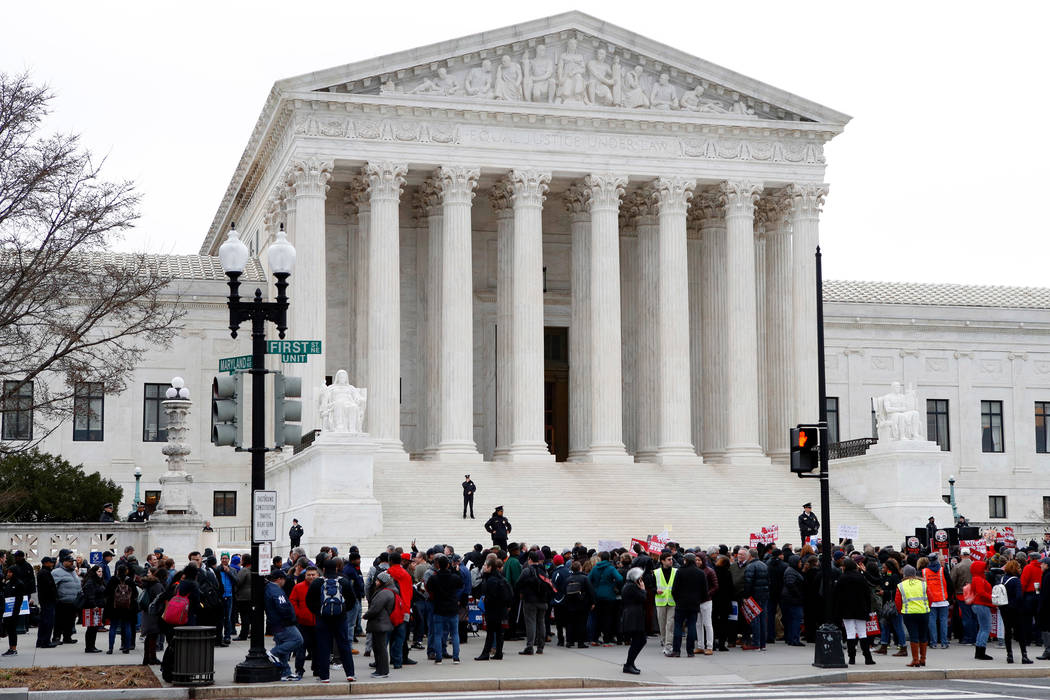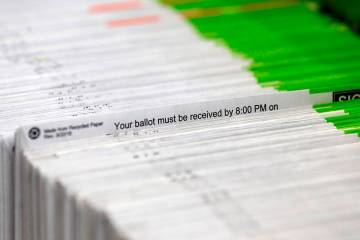EDITORIAL: New term approaches for the Supreme Court
While the House and the executive branch have transfixed the Beltway with their impeachment dance, it remains business as usual for the U.S. Supreme Court, which opens its new term on Monday. The justices currently have 41 cases on the docket, with more to be added in the months ahead.
The court will hear its share of arguments involving hot-button issues such as abortion, transgender rights and the Trump administration’s immigration policies, including the president’s decision to end Barack Obama’s Deferred Action for Childhood Arrivals program. The justices have also agreed to take on the most significant gun case since ruling 11 years ago in Heller that the Second Amendment protects an individual right to bear arms. The issue involves a New York City law that limits where gun owners are allowed to bring their weapons.
But dozens of more low-profile, though equally important, cases dot the docket. Here are a few to watch:
■ In Espinoza v. Montana, the high court takes on a case with ramifications for the school choice movement. At issue is a Montana law that allowed private companies to receive tax credits for donating to a scholarship fund that parents could use to send their children to private school. In applying the credits, however, state tax officials, differentiated between religious and secular private schools. The Montana Supreme Court later struck down the program in its entirety, citing the state’s Blaine Amendment, a 19th century provision with anti-Catholic and discriminatory roots that outlaws using public funds for religious education.
In fact, the Montana scholarship program was neutral on the matter of religion — it neither favored nor discriminated against parochial schools, leaving the matter in the hands of parents. More than three dozen other states, including Nevada, have some version of the Blaine Amendment, which has been interpreted to allow state discrimination against religious schools. The Supreme Court can remedy that wrong.
■ In Ramos v. Louisiana, the court has the opportunity to strengthen Sixth Amendment rights. The case scrutinizes a Louisiana law that allows non-unanimous jury convictions and led to Evangelisto Ramos being found guilty of murder despite “not guilty” votes by two jurors. The state has since repealed the law in question, but Oregon also allows split jury verdicts in criminal cases.
In 1972, the Supreme Court ruled that the Sixth Amendment required unanimous verdicts in federal criminal trials but that states may have more leeway. The concept of states’ rights, however, shouldn’t override the protections delineated in the Bill of Rights. Last year, the justices held that the 14th Amendment “incorporates” the Eight Amendment’s prohibition against excessive fines as it applies to the states. The same reasoning should apply here regarding the 14th and Sixth amendments. Unanimous verdicts in criminal cases serve as a vital check on authoritarianism and tyranny.
■ In Kansas v. Glover, the justices will hear an intriguing case involving “reasonable” searches and seizures and a traffic stop. At issue is whether “for purposes of an investigative stop under the Fourth Amendment, it is reasonable for an officer to suspect that the registered owner of a vehicle is the one driving the vehicle absent any information to the contrary.” The case involves a Kansas man who was pulled over after an officer ran a license-plate check and discovered the owner of the car had a suspended license.
Kansas’s highest court held that an assumption regarding the driver of a vehicle is not enough to initiate a traffic stop absent some legal violation. The Supreme Court has typically sided with the police on such issues, but the case raises interesting questions. “Permitting the police to conduct suspicionless seizures of vehicles registered to owners with suspended licenses — without knowing who is actually driving,” argues a bipartisan brief from various groups, including the libertarian Institute for Justice and the left-wing Southern Poverty Law Center, “will invade the Fourth Amendments rights of millions of Americans, with little to no corresponding benefit to public safety.”




























